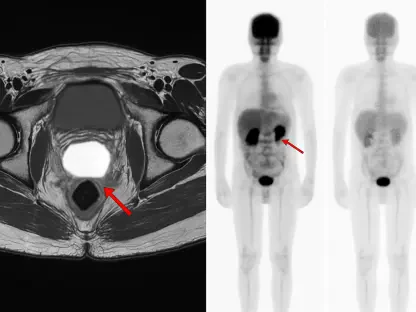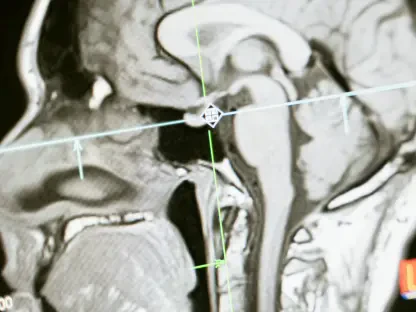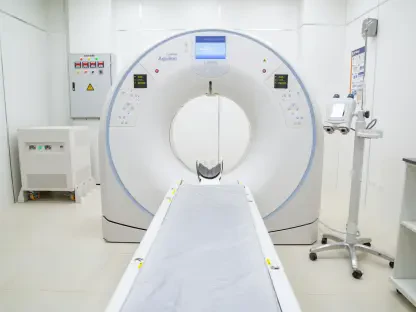In an era where healthcare providers face mounting pressure to deliver precise, timely care amidst overwhelming data and complex patient needs, innovative solutions are emerging to bridge critical gaps. A groundbreaking development in this space comes from Wolters Kluwer Health, a global leader in professional information and software solutions, with the launch of a cutting-edge tool designed to revolutionize clinical decision-making. This advanced generative AI-powered clinical decision support (CDS) system is poised to redefine how clinicians access evidence-based answers at the point of care. By harnessing the power of artificial intelligence while grounding it in expert-authored content, this solution addresses the dual demands of speed and accuracy in medical settings. It represents a significant leap forward, offering a conversational assistant that not only provides rapid insights but also ensures transparency and reliability, setting a new standard for healthcare technology integration across diverse systems and workflows.
Revolutionizing Clinical Decision Support with AI Innovation
The introduction of this AI-driven tool builds on the trusted legacy of a widely used CDS platform, relied upon by thousands of hospitals globally for decades. Unlike traditional systems, this new solution operates as an intelligent conversational assistant, delivering context-rich responses derived from rigorously peer-reviewed and expert-authored medical content. Its standout features include clear access to the reasoning behind each recommendation, detailed step-by-step explanations of conclusions, and seamless links to foundational content for deeper exploration. Powered by a unique clinical intelligence framework that mirrors expert thinking, the tool is supported by a robust validation process and a network of over 7,600 medical experts. This ensures that complex data is synthesized into actionable insights, enabling clinicians to make faster, well-informed decisions that directly enhance patient outcomes in high-pressure environments where every second counts.
Beyond its technical capabilities, this solution signifies a shift toward smarter, more intuitive support for healthcare professionals navigating intricate cases. The AI’s ability to distill vast amounts of medical information into concise, relevant answers addresses a critical pain point in clinical settings: the need for immediate, dependable guidance without sacrificing depth or accuracy. This is particularly vital in scenarios where time-sensitive decisions can mean the difference between life and death. Additionally, the system’s design prioritizes user trust by maintaining a transparent approach, allowing clinicians to understand the logic behind suggestions rather than relying on opaque algorithms. By aligning cutting-edge technology with human expertise, it empowers medical teams to focus on patient interaction rather than getting bogged down by information overload, ultimately fostering a more efficient and compassionate care delivery model.
Seamless Integration into Healthcare Workflows
A key strength of this AI tool lies in its purpose-built design for enterprise-wide deployment, ensuring it integrates effortlessly into existing healthcare infrastructures. By embedding into electronic health records (EHRs), AI scribes, and other essential platforms, it minimizes disruptions and enhances compliance with governance standards. This thoughtful integration allows clinicians to access critical insights without needing to navigate cumbersome technology, keeping their attention squarely on patient care. The system also undergoes continuous updates with the latest evidence from medical journals, clinical trials, and authoritative sources, guaranteeing that its recommendations remain current and reliable. Such adaptability is crucial in a field where new research and guidelines emerge constantly, ensuring that healthcare providers are always equipped with the most up-to-date information to inform their decisions.
Moreover, the focus on responsible AI implementation sets this solution apart in an industry often wary of technological overreach. The tool not only streamlines workflows but also addresses organizational needs by supporting scalability and security across diverse healthcare settings. This balance of innovation and practicality reflects a broader trend of leveraging AI to enhance efficiency while maintaining trust and precision in clinical environments. As healthcare systems worldwide grapple with resource constraints and increasing patient volumes, such a system offers a way to optimize operations without compromising the quality of care. By reducing administrative burdens and enhancing decision-making speed, it enables medical professionals to allocate more time to direct patient engagement, fostering stronger relationships and improving overall satisfaction within the healthcare ecosystem.
Shaping the Future of AI-Driven Healthcare Efficiency
Looking at the bigger picture, this development underscores a growing reliance on AI to meet the escalating demands of modern healthcare while upholding stringent standards of accuracy. Industry leaders emphasize the importance of applying generative AI in a trustworthy manner, ensuring that medical answers are not only quick but also deeply rooted in validated expertise. This approach responds directly to the pressing need for precision in clinical settings, where errors can have profound consequences. By combining technological advancement with a commitment to evidence-based practice, the tool exemplifies how AI can augment human capabilities, creating a synergy that elevates the standard of care. Its impact extends beyond individual clinicians to entire organizations seeking to implement AI responsibly within their frameworks.
Reflecting on the strides made, the launch of this AI solution marked a turning point in how technology supports healthcare delivery. It demonstrated that with careful design and expert oversight, AI could transform complex data into practical insights, streamlining operations across varied medical contexts. As a result, it paved the way for enhanced patient care through faster, more informed decisions. Moving forward, the focus shifted to expanding such innovations, ensuring broader access for healthcare providers globally. The challenge remains to balance technological growth with ethical considerations, prioritizing transparency and continuous improvement. This milestone serves as a reminder that the future of medicine lies in harmonizing human expertise with AI’s potential, offering a blueprint for sustainable progress in clinical support systems.









